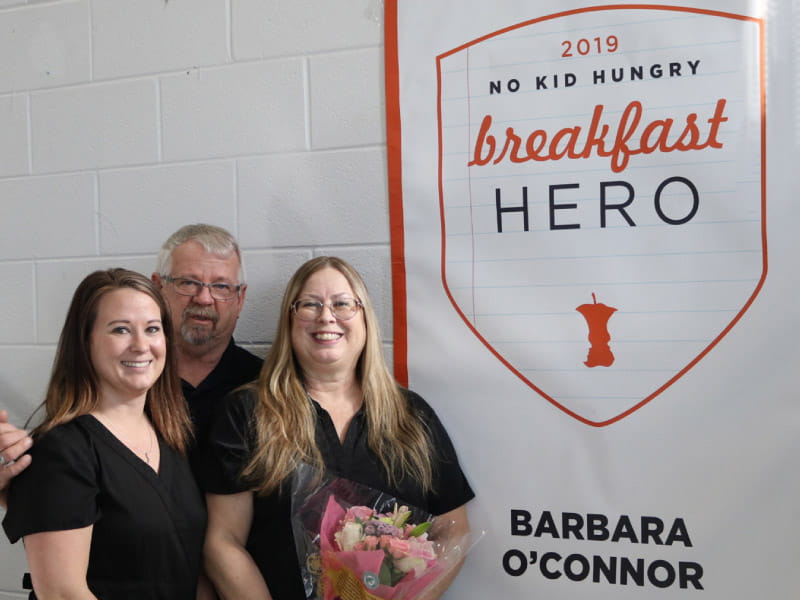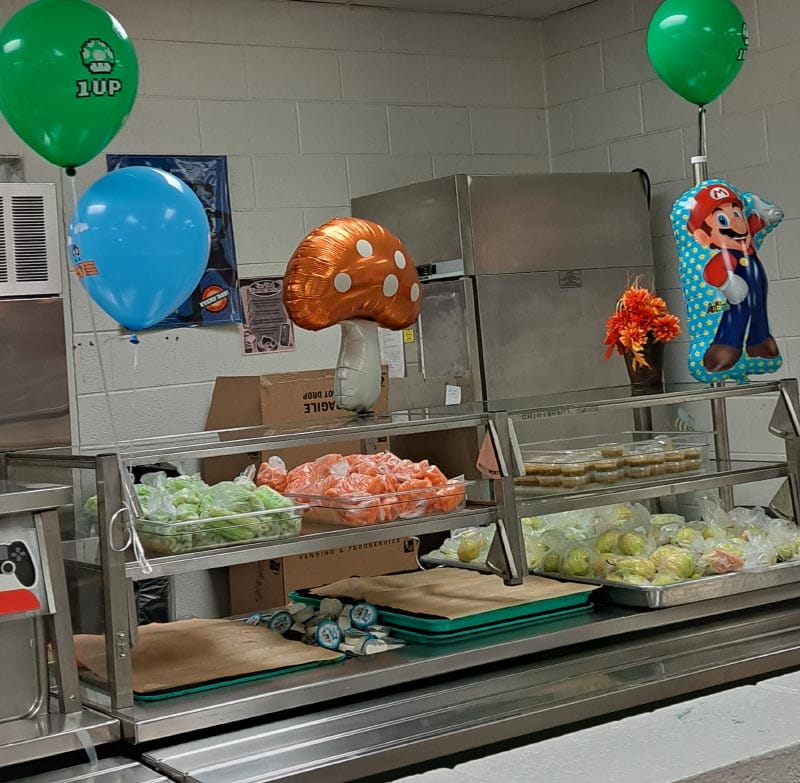Lessons in healthy eating from a school nutrition manager
By Laura Williamson, American Heart Association News

As soon as the students get off the bus at Morrow Middle School each morning, the first thing they see is Barbara O'Connor and her breakfast cart. For 10 years at the school south of Atlanta, the 66-year-old nutrition manager has made sure every student who walks through the doors has the chance to start their day with a healthy breakfast.
"Apples, bananas, oranges, sliced pears, mandarin oranges, sliced peaches or whole peaches – lots of fresh peaches. They can get a half a cup of fruit or a piece of whole fruit every day," she said.
There are other choices as well, including cereal, muffins and yogurt, for example. "Most of our stuff is whole grain," O'Connor said. "We also offer strawberry-banana or peach smoothies, and this year we'll give them the option of hard-boiled eggs."
"If they want it, they can take it and go into the cafeteria to eat or go straight to the classroom with it," she said. Best of all, the food is free to any student who wants it. And if they want seconds? She's not going to tell them no.
"They will sneak back when it's something good to get another one."
Meals offered in public schools are gradually being brought in line with the federal Dietary Guidelines for Americans, limiting added sugars and allowing for protein-rich breakfast options such as yogurt, tofu, nuts and seeds as an alternative to sugary breakfast foods.
O'Connor, winner of the No Kid Hungry School Breakfast Hero award in 2019, talked about her school nutrition work with American Heart Association News as part of "The Experts Say," a series in which specialists explain how they apply what they've learned to their own lives. The following interview has been edited.
How do you encourage the students to eat healthier foods?
We put up posters about the five food groups (fruits, vegetables, grains, protein foods and dairy) and signs that tell them how many grains, fruits and vegetables they should have. (The American Heart Association considers some fats and oils a sixth food group.) We make sure healthy choices are available at breakfast and lunch. Our pizzas are whole grain. We offer a chef's salad three times a week. And we always have plenty of fruit.
We can suggest healthy choices, but we're not allowed to tell them what to pick up.

How do you ensure your own family is eating healthy foods?
I have four adult children – two boys and two girls – 10 grandchildren, two great-grandchildren and another one on the way.
When they stay over, the grandchildren love my husband's scrambled eggs. We always have fruit, whether it's fruit cups or bananas or watermelon, there's always some kind of fresh fruit.
I'll make a turkey three or four times a year and make turkey soup afterward. That's one thing my kids love. They know that after Thanksgiving I'm going to make turkey and rice soup with celery, onions and carrots. They come over and get plastic containers of it, so I started making it all year long so they could do that.

How do you incorporate healthy eating into your own meal choices?
My husband, John, has high cholesterol and we both have Type 2 diabetes, so we eat a whole lot more vegetables than we used to. We both love broccoli. We probably eat it three times a week. I steam it. One of John's favorite foods is beets. He loves those.
We don't fry anymore. Everything's baked. We eat fish and chicken. We try to stay away from red meat. I make things like chicken fajitas with bell peppers. John likes cabbage on his.
And we're careful about portion control. If my husband and I go to a restaurant, anything we get we're taking half of it home.
What else do you do to stay healthy?
We have a pool, so we get out there in the summer and swim. The kids don't come over as much as they used to, but John and I swim laps. We take a lot more walks. We have walking trails throughout the city, and we go out and walk the dog. I've been known to go out there and do an hour-and-a-half walk with the dog.
During the school year, it can be difficult, but most of the time I'm home by 3:15 or 3:30. I'll just grab the dog and go for a walk. That's my decompression time.






